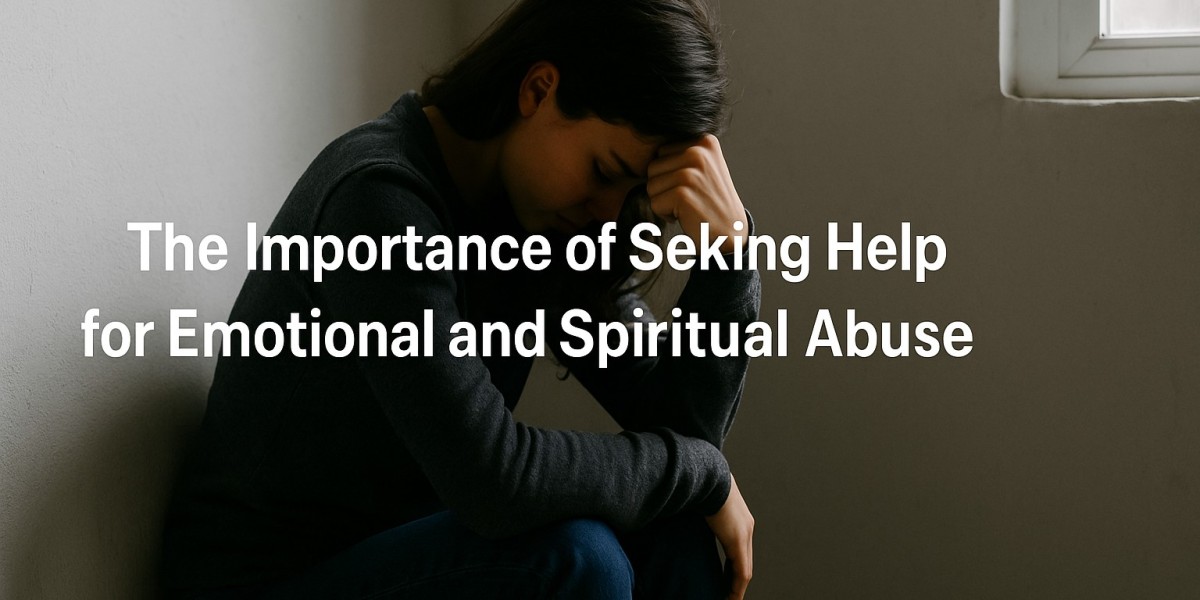In today's world, abuse doesn't always leave visible scars. While physical abuse is often easier to recognize, emotional and spiritual abuse can be subtle, complex, and deeply damaging. Victims may not even realize they are being abused until the effects manifest in overwhelming ways—through anxiety, depression, low self-worth, or identity loss. This is why seeking professional help for emotional and spiritual abuse is not just important—it's essential for healing and reclaiming one's life.
At Change with Dane, individuals are guided through a transformative journey of emotional healing therapy and life transitions counseling, offering them a safe space to unpack trauma, process emotions, and rebuild self-trust. But before exploring how such therapy helps, let's understand what emotional and spiritual abuse truly are.
What Is Emotional Abuse?
Emotional abuse involves manipulation, control, and psychological harm. It often occurs in personal relationships—whether with a partner, parent, boss, or friend. Unlike physical abuse, emotional abuse doesn't leave bruises, but it can destroy self-esteem and make individuals question their sanity.
Common Signs of Emotional Abuse:
Constant criticism or belittling
Gaslighting or making someone feel "crazy"
Isolation from friends and family
Controlling behavior
Passive-aggressive comments or emotional blackmail
The damage caused by emotional abuse often leads to long-term psychological effects, such as chronic anxiety, PTSD, and feelings of unworthiness.
What Is Spiritual Abuse?
Spiritual abuse is often misunderstood or overlooked. It occurs when someone uses spiritual beliefs or religious practices to control, shame, or manipulate another person. This type of abuse can happen in religious communities, families, or intimate relationships.
Indicators of Spiritual Abuse:
Using scripture or doctrine to justify mistreatment
Forcing religious beliefs upon others
Claiming to speak for a higher power to control behavior
Shaming someone's spiritual journey or struggles
Isolating someone from their spiritual community
Spiritual abuse is particularly harmful because it severs the victim's connection to their identity, values, and beliefs—things that often provide strength during difficult times.
The Overlap Between Emotional and Spiritual Abuse
These two forms of abuse often go hand in hand. For example, a partner might emotionally manipulate someone by using spiritual guilt—saying things like “If you were a better person, you’d forgive me,” or “God told me you should obey me.” Over time, victims may lose their sense of self, become fearful of divine punishment, and feel trapped in toxic environments.
This is why healing must address both the emotional and spiritual layers of trauma. At Change with Dane, the therapeutic approach is holistic, nurturing the body, mind, and spirit for deep, lasting recovery.
Why People Struggle to Seek Help
Despite the pain, many victims don’t seek help due to:
Shame or guilt: Victims often blame themselves for the abuse.
Fear of not being believed: Especially in spiritual abuse cases, others may dismiss their experiences.
Loyalty to the abuser: This is common in family or religious settings.
Minimizing the abuse: People think “It wasn’t that bad” or “I’m just being too sensitive.”
However, acknowledging the abuse is the first—and most courageous—step toward healing.
How Emotional Healing Therapy Can Help
Emotional healing therapy is a structured process that allows individuals to explore their trauma in a safe, nonjudgmental space. It involves recognizing harmful patterns, validating one’s experiences, and learning healthy coping mechanisms.
Key Benefits:
Validation of your experience: Therapy confirms that your feelings are real and important.
Rebuilding self-worth: Abuse tears you down; therapy builds you back up.
Developing boundaries: You’ll learn to say no and protect your emotional space.
Breaking free from shame: Understanding that the abuse wasn’t your fault helps release internalized guilt.
Emotional regulation: You'll learn how to manage anxiety, sadness, anger, and fear in healthier ways.
At Change with Dane, therapy sessions are designed to help clients reconnect with their inner selves and rediscover the voice that abuse may have silenced.
Navigating Life After Abuse with Life Transitions Counseling
Healing from abuse is not just about the past—it’s also about stepping into a new future. Life transitions counseling helps individuals adapt to the many changes that come with reclaiming their life.
Whether it’s leaving a toxic relationship, setting spiritual boundaries, or redefining your purpose, these transitions can be emotionally taxing. Having a guide like Dane ensures that you’re not walking alone.
Areas Life Transitions Counseling Covers:
Rebuilding your identity
Exploring new or different belief systems
Creating healthy relationships
Establishing new life goals
Learning to trust yourself again
This kind of support is vital. Healing is not linear, and having someone to walk with you through each twist and turn makes all the difference.
Real-Life Examples of Healing
Here are just a few fictional but realistic examples of how Change with Dane can make a life-changing impact:
Example 1: Sarah’s Journey from Shame to Self-Worth
Sarah spent ten years in a relationship where her partner used scripture to justify control and manipulation. After working with Dane through emotional healing therapy, Sarah began to separate her faith from the abuse. She now volunteers at a women’s support group and mentors others on reclaiming their spiritual identity.
Example 2: Mark Finds His Voice
Mark was raised in a strict religious household where questioning authority was seen as sinful. He was emotionally and spiritually abused for being gay. Therapy with Dane helped him recognize that his worth is not tied to others’ beliefs. Mark has now found a new faith community that affirms and supports him.
Why Choose Change with Dane?
Change with Dane isn’t your typical counseling service. It’s a transformative space built on compassion, trust, and a deep understanding of emotional and spiritual trauma. Whether you're looking for emotional healing therapy, life transitions counseling, or a holistic approach to personal growth, Dane’s process is rooted in heart-led healing.
Core Values of Change with Dane:
Empathy without judgment
A safe space for exploration
Empowerment through self-awareness
Personalized healing journeys
Focus on both the emotional and spiritual self.
You don't have to figure it all out at once. You just have to take the next right step.
How to Begin Your Healing Journey
It starts with a single decision: to stop surviving and start healing. Whether you're struggling with emotional scars, spiritual confusion, or life transitions, you deserve support. You deserve clarity. You deserve peace.
Visit Change with Dane to explore services, read testimonials, or schedule a free consultation. Remember, healing doesn't mean forgetting the past—it means owning your story and using it to build a better future.
Final Thoughts
No matter how strong you are, no one is meant to endure emotional or spiritual abuse alone. These hidden wounds can fester silently for years, affecting every area of your life—from your relationships and career to your health and self-worth.
Change with Dane offers the tools, empathy, and guidance you need to rise again, stronger and wiser. You don't have to carry this pain forever. There is help. There is healing. And there is hope.








